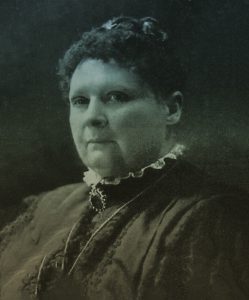
Luise Adolpha Le Beau (1850-1927) German composer, pianist, teacher and critic.
At the age of five, Le Beau began to play the piano, and she was early on encouraged to compose her own music. For one summer, she studied for renowned pianist and composer Clara Schumann, but it seems like the chemistry wasn’t there between them…women in history haven’t always helped each other. However, through her primary teacher Rheinberger, she had plenty of contacts in the musical elite of the time – von Bülow, Wagner, Liszt etc. When the debate regarding the New German School roared, Le Beau (being on the Liszt side) split with her teacher (who was on the conservative side) and continued her education for Lachner. Later in life, as usually is, Le Beau would be a hard critic of the new music of the time.
As all formal music educations were off limits to girls, her entire education was conducted with private teachers. She always had in mind that she wanted to elevate women and their music to a professional level, and therefore started a music school for girls only (girls with means, that is) where theory was of equal status to piano playing. The whole objective of the curriculum was to raise women’s status as musicians.
She also wrote articles on the subject, e.g. “Music as a female profession” and “Women composers from the past century” where she studies, among others, the music of Marianna Martines.
In 1882 her cello sonata op. 17 won an international award and it is also one of my favourites! (Some sources, however, claim that it was the op. 24 that was her entry to this competition.) The piano quartet op. 28 was a tremendous success when premiered in 1884 at the Gewandhaus, and it was a piece often performed during her lifetime. The piano trio op. 15 is a simple but good piece perfect for any young trio eager to start with their first real piece.
For larger occasions we have the symphony op. 41, the symphonic poem “Hohenbaden”, the opera “the Enchanted Caliph” op. 55 and “Ruth” – biblical scenes for soloists, choir and orchestra op. 27.
As many of her pieces were published by the big publishing houses, her music became widely spread and by the end of the century played even in Australia.
At the end of her life, she published her “memoirs of a woman composer” where we can read more about her thoughts and the struggle behind her successes.
A complete list of her works for you here, and a selection of some sheet music here.
